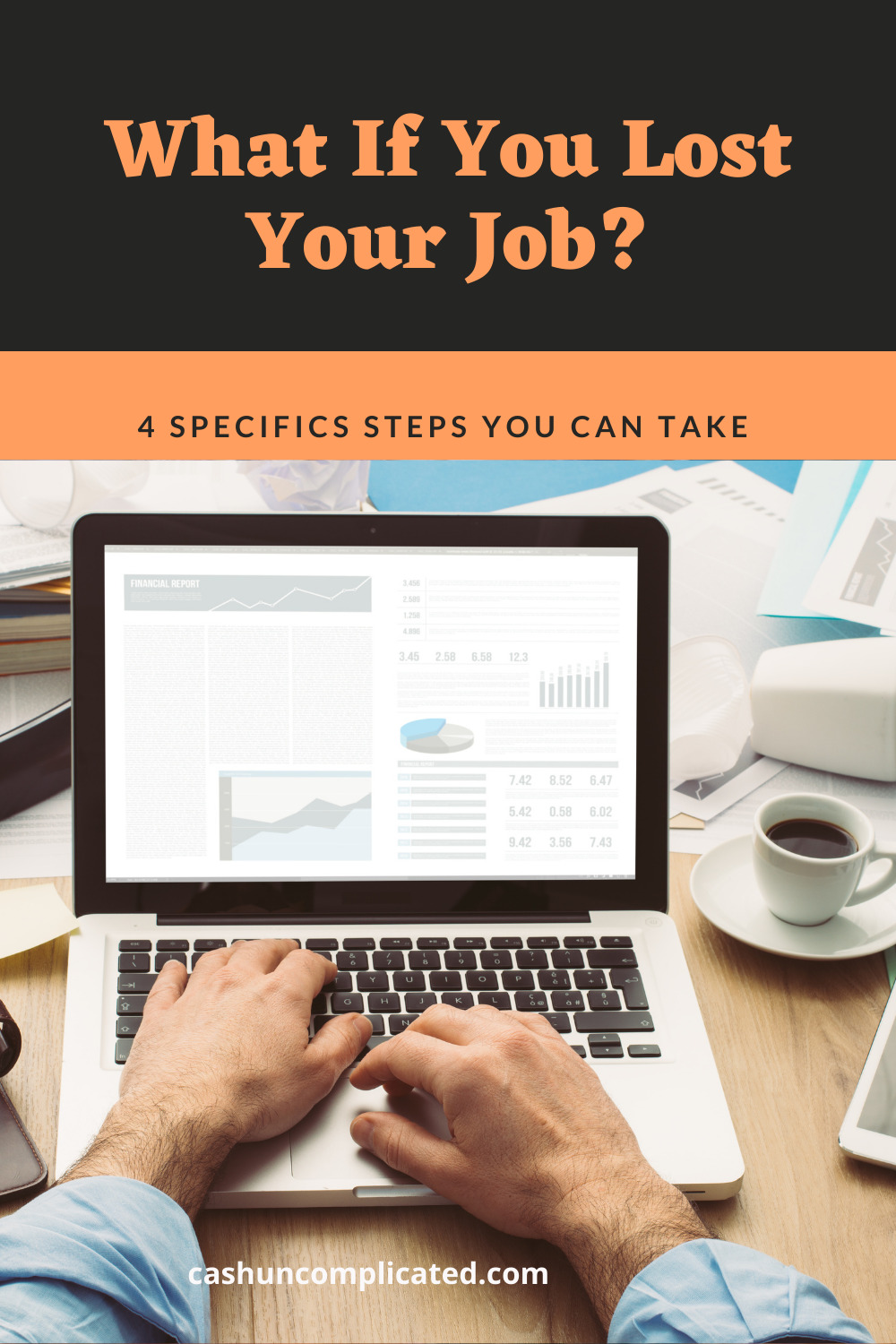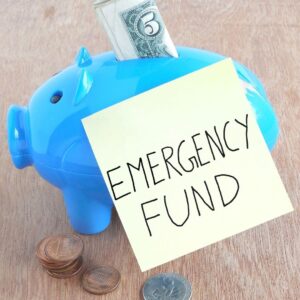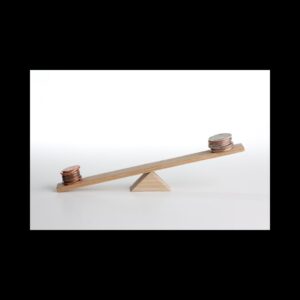One of the most common fears for people in personal finance is losing their job. A job loss can happen for any number of reasons. Company down-sizing, poor performance, disruptions in the industry, reductions in state and/or federal funding, and countless other ways.
Losing your job can be very scary. Most people have put a lot of time and effort into their work and developed skills for their career. When that is lost for whatever reason, it’s very scary. We and our families likely depend on our income, benefits, health insurance, and everything else that comes with gainful employment.
We don’t have to be doomsday seekers to be prepared. A huge benefit of being in control of our personal finances is that it gives us more options and helps us sleep better at night when the unexpected comes up, including losing a job.
These are a few basic things we can do to be prepared for an unexpected occurrence like losing our job.
Emergency Savings
An emergency savings is designed specifically for the unexpected. A job loss would certainly fall under that category. Although nobody wants to touch this money, this is what it’s for. In a worst case work scenario, an emergency fund gives you some protection and buys you time.
Let’s use an example of someone currently making $4,000 per month who requires $2,400 per month to cover basic expenses. Not expenses like entertainment and going out to eat, but expenses like rent/mortgage and food from the grocery store. This person would multiply $2,400 by the number of months they want to have in an emergency fund. If they want:
- 3 months they would need: $7,200
- 6 months they would need: $14,400
- 9 months they would need: $21,600
- 12 months they would need: $28,800
Emergency Savings: How Much Should You Have?
How much you keep in an emergency fund depends on a number of factors, especially job stability. In general, people with consistent and stable income carry less than those with a less predictable income source. For a more detailed analysis in considering how much you should carry in an emergency fund, see related post: How Much of an Emergency Fund Should You Really Have?
An emergency account keeps you in a strong position, even with a job loss. Someone with several months to a year of financial runway can take their time finding a new job. They don’t have to rush into a job they don’t like, or one with limited potential. Someone with financial runway can slow down, network with friends and business acquaintances, and search for a really good job.
Conversely, someone without an emergency fund likely will need to rush into something else just to pay the bills. As a result, they might miss out on opportunities they might have had with the luxury of being more selective or settle for something with limited potential.
Investments
One of the biggest reasons to invest is to generate passive income. Or in other words—investments that pay you, even without you working. Some investments, such as cash flowing real estate pay you now. Other investments pay you in the future. Like an emergency fund, investments are a huge hedge against job loss.
Using the same example from above of someone making $4,000 per month who requires $2,400 per month to cover basic expenses. If this person owns a few rental properties totaling $2,400 or more in monthly cashflow, their basic expenses are already covered by their investments. Someone in this situation can get by for months or years at a time just by living off their investments.
Sure, the standard of living will be reduced, but there’s tremendous power in investments covering basic expenses. Much like with the emergency fund, this provides financial runway and the opportunity to be more selective about future employment. There’s peace of mind knowing basic bills are taken care of for the foreseeable future.
The same principle applies to investments that provide monthly dividends. If monthly dividends equal or exceed monthly living expenses, that person has financial runway. Someone in this position can still actively look for employment, but they can be much more selective knowing their bills are covered for the month.
The best way for money to compound is by reinvesting your earnings from investments like real estate or dividends. Using that money to temporarily pay for monthly expenses is something that will work, but it’s important to understand that it will slow compounding.
In a true emergency where the emergency fund has already been drained and there is no other income source, money can be pulled from investments. This is a worst case scenario, and not recommended. If you are at a point of needing to do this, it’s recommended that you talk with a financial advisor and tax professional first.
Leveraging Skills
What skills have you developed at your job or on your own in the last few years? What can you do with those skills to translate them into another form of employment? This doesn’t necessarily have to be full time work; it can be something part time just to get you through a rough stretch.
For consistency, we’ll continue to use the example of someone who lost their job that paid them $4,000 per month. For this example, let’s call this person Joe. Joe requires $2,400 per month to live on. Since he only needs $2,400 per month to live on, he doesn’t have to immediately find a job that pays him the same amount as his last salary.
Suppose Joe worked in an advertising firm before losing his job. Joe is especially skilled in writing copy, researching, talking with people about their products, and designing an advertising campaign. He has a wide range of skills that translate to other fields.
While Joe is looking for full time work back in the advertising field, he can put his services on Fiverr or Upwork to take on small projects from small businesses and entrepreneurs. He can help clients with advertising, write blog posts, consult, manage social media accounts, and much more. None of these small jobs require a full time commitment. Joe can perform this work on the side while searching for full time employment.
If he performs high quality work, he may even be hired for full time work by one of these companies, or referred to a company that is hiring. At the very least, these small projects will help Joe get by during a potentially rough period of time.
Part Time Work
Similar to the last section, someone who loses their job can find part time work. It can be in a position that leverages their skills like in the last section, or be something entirely different. There are many opportunities for part time work in a wide range of fields. They probably pay less than full time work, but they also require less time.
Requiring less time is the key here. Part time can be done in addition to looking for other work. For example, a person in this situation may spend the first few hours in the morning working their part time job. Later in the day they would work on cover letters, connect with potential employers on LinkedIn, network with friends/acquaintances, go on interviews, etc.
During the course of the day, the person in this situation is doing both. Staying afloat by making a little money with side work, and aggressively performing actions that will lead to full time employment. It’s important to remember part time work isn’t necessarily a career change, it’s just something to help you get by until you find full time employment.
Although it may sound strange, a time period like this might be a good opportunity to recalibrate and refresh by doing part time work completely different from what they had been doing. For example, someone recently laid off from a high level management position might find it refreshing to do part time work in a field far away from the high stress work they’ve been involved with for the past several years.
It Doesn’t Have to Be All or Nothing
It doesn’t have to be all or nothing. All of the strategies outlined can be combined in some shape or form. There is no rule stating you can only use one strategy. For someone who lost their job making $4,000 per month who needs $2,400 per month for basic living expenses, they can use one of the strategies, a couple of them, or combine all of them. Whatever combination works for that given situation should be utilized.
To review, these are the four strategies that have been covered up to this point:
- Emergency Savings
- Investments
- Leveraging Skills
- Part Time Work
A Combination
Ideally, fund your basic living costs through a combination of part time work and leveraging skills. The less we can withdraw from our emergency fund and investments, the better. This is the order I would suggest:
- Leverage skills and part time work
- Withdraw from emergency account
- Begin to withdraw money from investments
If someone in this position can earn $2,400 or more through part time work, they won’t have to withdraw from any savings or investments. That allows them to “tread water” and get by until they find full time employment. Nobody wants this period of time to last forever, but it is sustainable for a longer stretch than some of the other options.
For someone finding part time work not equaling $2,400 they would supplement their part time work with emergency savings. For example, if someone finds a way to make $2,000 they would have a $400 gap. $2,000 would be through part time work and the remaining $400 would be through emergency savings.
The same principle applies for someone earning less than $2,000 per month. If they’re making $1,600 per month, that leaves them $800 short of the needed $2,400. If they’re making $1,200 per month, that leaves them $1,200 short.
For someone who has depleted their emergency savings and can’t find any part time work, their last resort would be to withdraw from investments. This last resort would only occur when the emergency savings is completely depleted. A combination of part time work, side jobs, and emergency savings should be able to get most people through unemployment stretches though.
Bonus: Don’t Underestimate Yourself
During slow times or periods of unemployment, it’s easy to get down on ourselves. For many people, work is a big source of their identity, and losing that is challenging. Expect some ups and downs, but try to stay as even keel as possible and know that things will improve if you’re taking the right steps to find employment.
It’s important to remind ourselves that we have options and have a solid track record of making good choices. Anyone who has worked on developing their skills, has the drive to work, or had the foresight to establish an emergency fund is still in a really good position. While it might be a temporary setback not to be working full time, things will turn around.
How do you prepare for the unexpected like a job loss?











